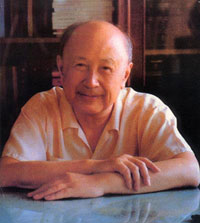Qian Xuesen Father of China's Space Tech Program Dies at 98
Qian Xuesen, a rocket scientist known as the father of China's space technology program, died Saturday in Beijing, the official Xinhua News Agency said. He was 98.

Qian, also known as Tsien Hsue-shen , began his career in the U.S. and was regarded as one of the brightest minds in the new field of aeronautics before returning to China in 1955, driven out of the United States at the height of anticommunist fervor.
Qian set up China's first missile and rocket research institute, which later helped start China's space program, The Associated Press reports.
He led the development of China's first nuclear-armed ballistic missiles and worked on its first satellite, launched in 1970.
He retired in 1991, the year before China's manned space program was launched. But his research formed the basis for the Long March CZ-2F rocket that carried astronaut Yang Liwei into orbit in 2003.
In August, Chinese Premier Wen Jiabao visited Qian and praised him for dedicating his life to China's defense technologies, according to Xinhua.
Qian, who name is also spelled Tsien Hsue-shen, was born in eastern China but went to the United States in 1935 to study at the Massachusetts Institute of Technology and then the California Institute of Technology.
He returned to China in 1955 after the Communist revolution, and joined the Party in 1958.
Qian was put in charge of developing the country's first missiles, and also oversaw the development of China's first atom bomb, exploded in 1964.
"His return brought China the hope of developing space science and its own missiles," state media said of him in a report last year.
China put its first man into space in 2003, Reuters informs.
Subscribe to Pravda.Ru Telegram channel, Facebook, RSS!


